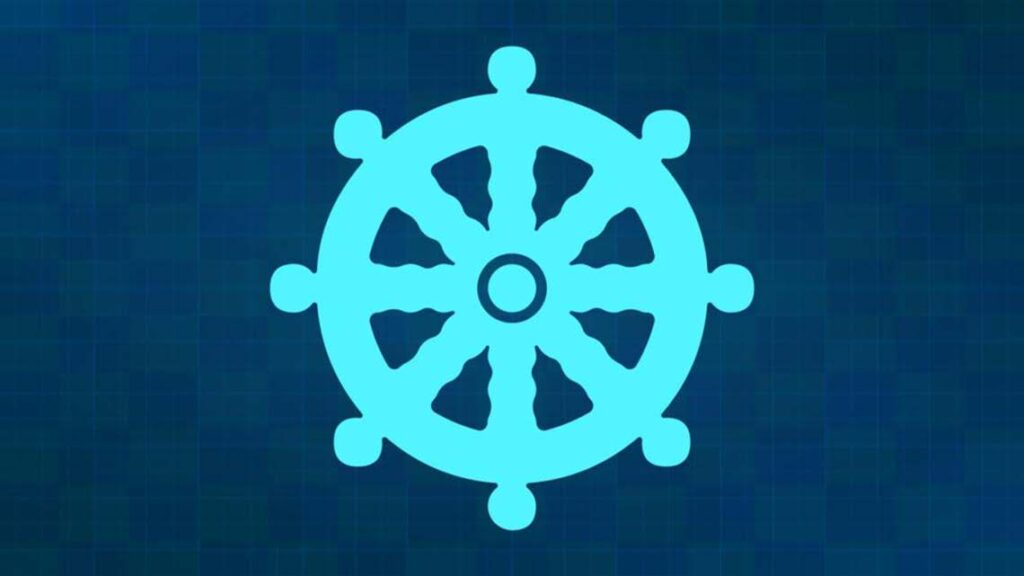
In today’s modern world very often, we feel overwhelmed when having to face problems springing at us from all directions at the same time for example a sudden equipment failure, a family member’s urgent phone call, request to sign off for family reasons, port state arrival, and a splitting headache because you missed lunch. Someone sitting ashore can assume that is hardly possible, but many sea farers go through this scenario as a quite common occurrence taking a toll on their mental health and wellbeing. Navigating such chaos so frequently not only requires harmony of mind and body but also demands emotional well-being.
Life at sea is especially stressful for seafarers who spend extended time away from family and loved ones. The physical and emotional challenges faced can have a significant impact on their wellbeing and productivity.
Let us try to understand the underlying reasons that might explain the emotional turmoil a seafarer might suffer at sea. Their life revolves around two aspects where the brain and heart show inclinations to lead life in a direction that might not turn out to be the reality of life.
To simplify this, there can be three distinct aspects that could be shaping one’s life and guiding the direction it is taking –
- Scenario A– Life moving in the same direction with brain and heart in symphony- all three aspects (life, brain, and heart) are in symphony, and you are leading a smooth life. For instance, a person who has planned his career early on with the objective to be a seafarer, trained himself for the role mentally and professionally and enjoys the adventure and rewards of being a seafarer.
- Scenario B– Life moving in direction where the heart takes dominance over the brain – these people will have a conflict arising from overthinking. For example, A seafarer who chose sailing as a career as he enjoys sailing, might be constantly troubled by thoughts of opportunity cost and weighs other shore job benefits where he could have performed better financially.
- Scenario C– Life moving in direction where the brain is taking dominance over heart – we will have a seafarer who is at the job because of monetary perks or family burden but harbours secret love for being an actor or a musician.
One may find very few people in the first scenario (A) and these folks are probably either loners or high achievers in life. The second category (B) in general are emotional people who prefer listening to their heart and often make life choices based on their emotions. An artist, who enjoys his art or a social worker who enjoys his work but might be constantly conflicted with making money. The last scenario (C) is the largest group of people who are driven by logical and practical matters where family responsibilities, financial stability and social status decide the trajectory of life rather than what the heart desires. This group keeps their passion alive by pursuing that passion as a hobby and not their lifestyle.

Now that we have dissected the motivating factors in life, one might wonder exactly how to achieve the holy grail of symphony? Is it even possible to balance all three, create mental health and wellbeing?
Let us explore few recommendations once we bring the stress factors into focus-
Localised Stress – Mental Stress of a seafarer due to localized atmosphere—A seafarer suffers with mental health problems related to stress due to the local factors such as ship atmosphere, seniors behaviour towards him, lack of appreciation for jobs well done and plenty of criticism for jobs going wrong, lack of safety culture, lack of crew wellbeing thought process, lack of means of entertainment, lack of good food or facilities, lack of internet access, excessive workload due to vessel condition, frequent ports and external inspection, short port stays and excessive work planning in that port etc. the list can be endless and solution is a very simple one—a good shore management empathetic towards the seafarer work-rest and quality of life and ship staff positive involvement to make things better
Timing Based Stress – Another contributing factor to seafarer stress is his contract timing. A seafarer undergoes undue stress because although he is physically present onboard, his heart and mind are far away at home. There are times when a seafarer has requested to defer his joining due family commitments, but the manning company expects him to join as scheduled. Similarly, seafarers requesting early or timely relief could be denied signing off due to several manning related challenges. Such timing issues can cause a great deal of stress to the seafarer, and he might feel that his voice is not being heard. This leads to the additional stress where his mind starts telling him he is all alone in the world, and no one cares about his needs. Such issues can be easily managed by sensitive manning officers who can offer personalized solutions to show empathy, care and moral support. In extenuating circumstances when a favourable solution is not possible, an honest and genuine communication from the manning office can offer a sincere trust of good faith between a seafarer and employer creating seafarer wellbeing and optimal mental health.
Proficiency Stress – At times, we meet a seafarer who is exceptionally talented musician, singer, painter or good at coding or other different aspects of professional lives. However, this seafarer is sailing onboard ships due to family pressures, to earn more money or lack of opportunities in his area of interest. This seafarer will always have deep rooted stress in whatever duties he will perform onboard. This seafarer is most likely to be a loner onboard, not wanting to do more than minimum jobs, not willing to be part of social gathering and absolutely no pride to be a seafarer. This issue must be dealt at the academy level and Maritime Institutes should ensure the mental health strength test and trainee willingness to be seafarer for their wellbeing.
As mentioned above in recommendations, corrective actions should start as early as possible, in the maritime institute where they get ready for life as seafarers. There is an urgent need to offer institutional support to build resilience for optimal mental health and wellbeing, so the seafarers are well suited for challenges at sea. One such example could be 3 months on-the ship internship to let young people assess their career choices early in life to avoid the conflict of heart and brain later.
Then second step is for the ship management/owning companies to implement robust mental health and wellbeing strategies for their seafarers. To begin with, a quick psychological evaluation before the joining of a ship would help ascertain their mental preparedness and current state of mind before they jump into the challenging life of navigating chaos on ship. This practice for every seafarer will go a long way in creating a happy and harmonious work atmosphere at sea.
Once onboard, the company can have online mental health-checkups at a timely interval during the seafarer’s contract through questionnaires, surveys and zoom sessions with either an in-house psychologist or collaboration with a third-party counselling company to address wellbeing issues. This will flag out staff at risk of depression, stress, sadness or even suicidal ideation and thoughts.
The shore team including vessel managers and senior management leadership, and HR will also need to put the mental health and well-being of seafarers at the forefront. A seafarer might be experiencing emotional stress from how their peers onboard treat him or have complaints regarding living and working conditions or have personal issues at home. The company could empower the shore team to make decisions that improve the seafarer’s life at a micro level such as resolving conflicts among peers, sign off decisions and healthy budget for facilities such as gym, movie/ music area, bean bags or comfortable lounge areas, massage chairs and small library etc. allowing them to take mental brain-breaks. Decisions related to their sign offs might require close collaboration between the onshore team and manning department. No sign off request to be ignored as a routine request and issue needs a close follow up from the manning from manning team. There is no positive argument to keep a seafarer onboard when he does not want to be there.
The main objective is to make the seafarer feel that they are valued, and we care enough to offer support for their mental health and wellbeing. One of my firsthand experiences, which also motivated me to pen this article, emphasizes the power of empathy. On one of my ship visits, I asked the whole crew to rate themselves from 1 to 10 on ‘happiness index’ with ten being the happiest. Most of them chose 8 /9 and one of the deck cadets who had just started his career as a seafarer shouted eleven as he was so excited to be on his first ship and had been eagerly waiting for this day ever since he joined the maritime academy. However, the chief officer chose to rank himself as one. I remained quiet at that moment and invited him for informal talks later. As I listened to his reasons, I realized he was in a constant state of disarray where both his heart and brain were not aligned with his current life trajectory. He was a man burdened with family issues which in turn was turning him into a worrier. He was also aware that the Master was not incredibly happy with his work. Once the meeting was over, I updated the Master with his struggles and requested him to be more understanding and guide the chief office as an emotional coach. A month later when I enquired the Master for a follow up, I was pleased to receive a positive response that the chief officer was performing well, cheerful and got along well with others. The important thing to note is that no one helped him solve his family problems, it was simply a handheld out to him that showed empathy, support and care that did the job.
We need to spread this empathy and understanding collectively in our shipping industry to make it a more favourable work option. In addition to machines and commerce, it is time to focus on the people who are at the core of any ship management/owning company. Let us join hands to raise awareness about mental well-being and incorporate it as an integral part of our work culture.
Photo Credits:
First image: Valentina Burdina
Second image: liorpt

Krishan Dutt
About the author
Krishan Dutt (DMET/MERI-1998-2002) is presently working with Pacific Basin Shipping (HK) Ltd and managing his role of Ship Manager for Supramax and Handymax bulk carriers. He has earlier worked with leading ship managers like Fleet Management Limited and Anglo Eastern Ship Management prior shifting roles from Managers to Owners in April 2021 joining his current role in Pacific Basin. Mr Dutt is an active member of DMET Alumnus in Hong Kong and has been working in Maritime industry for last 22 years out of which last 12 years on shore since December 2012.
Recently Added
Parental mental health plays a monumental role in a child’s social, emotional, behavioural and psychological development. Parents and caregivers are central to …
Cognitive behavioral therapy (CBT) was initially developed by Aaron Beck in the 1960s and it is based on the cognitive model of …
Artificial Intelligence or AI, as we like to call it, has become a part of everyday operations, enhancing everything from manufacturing automation …




